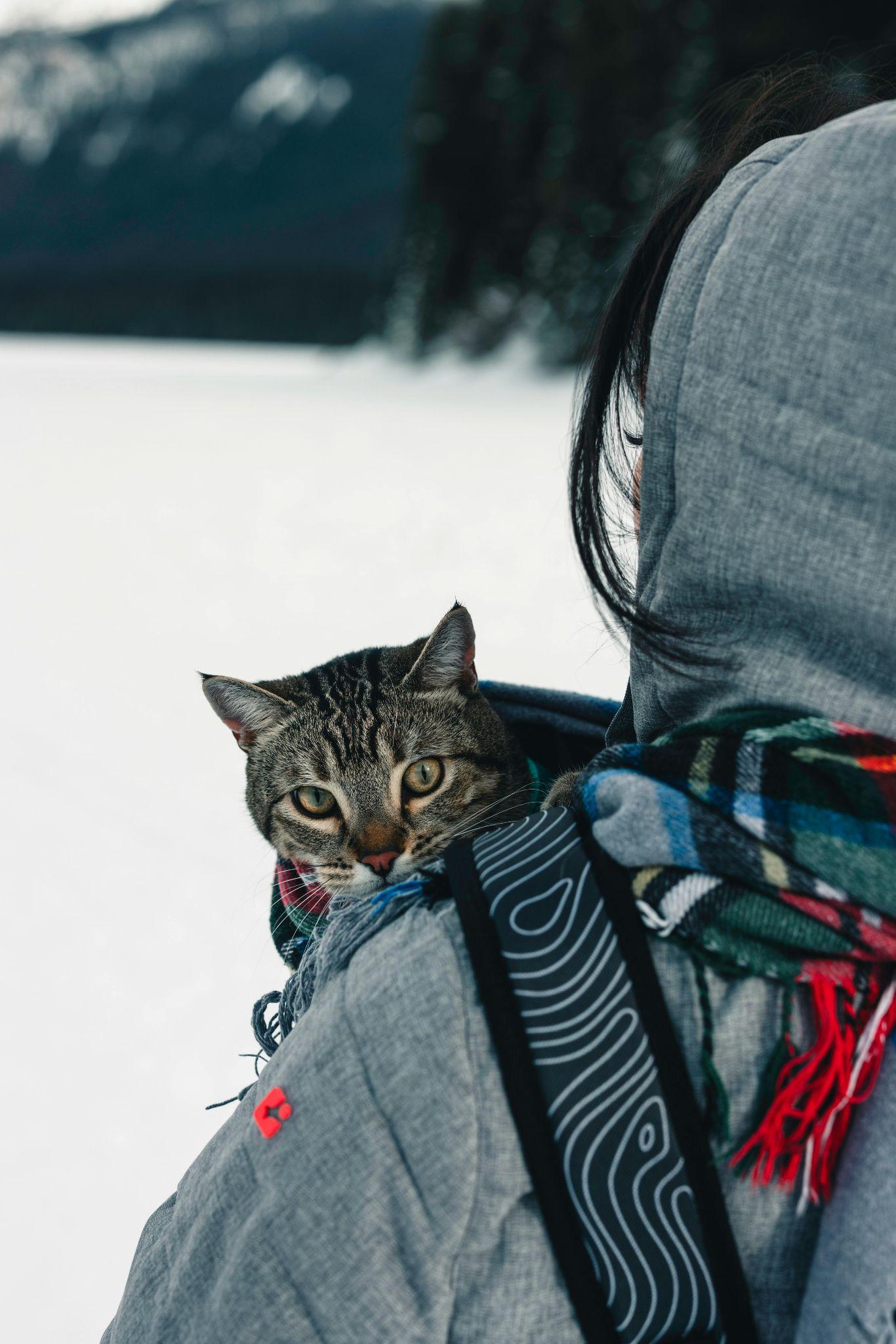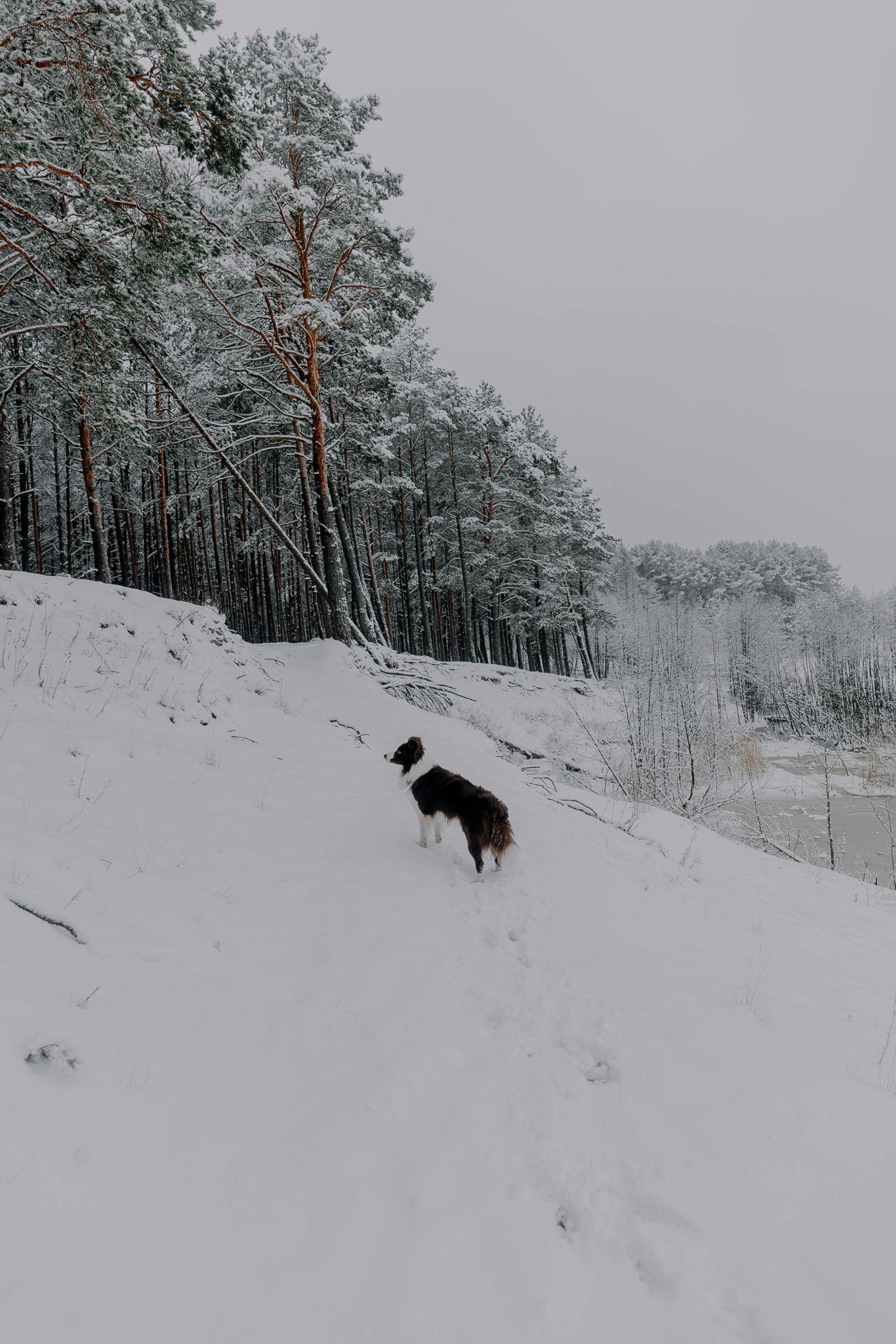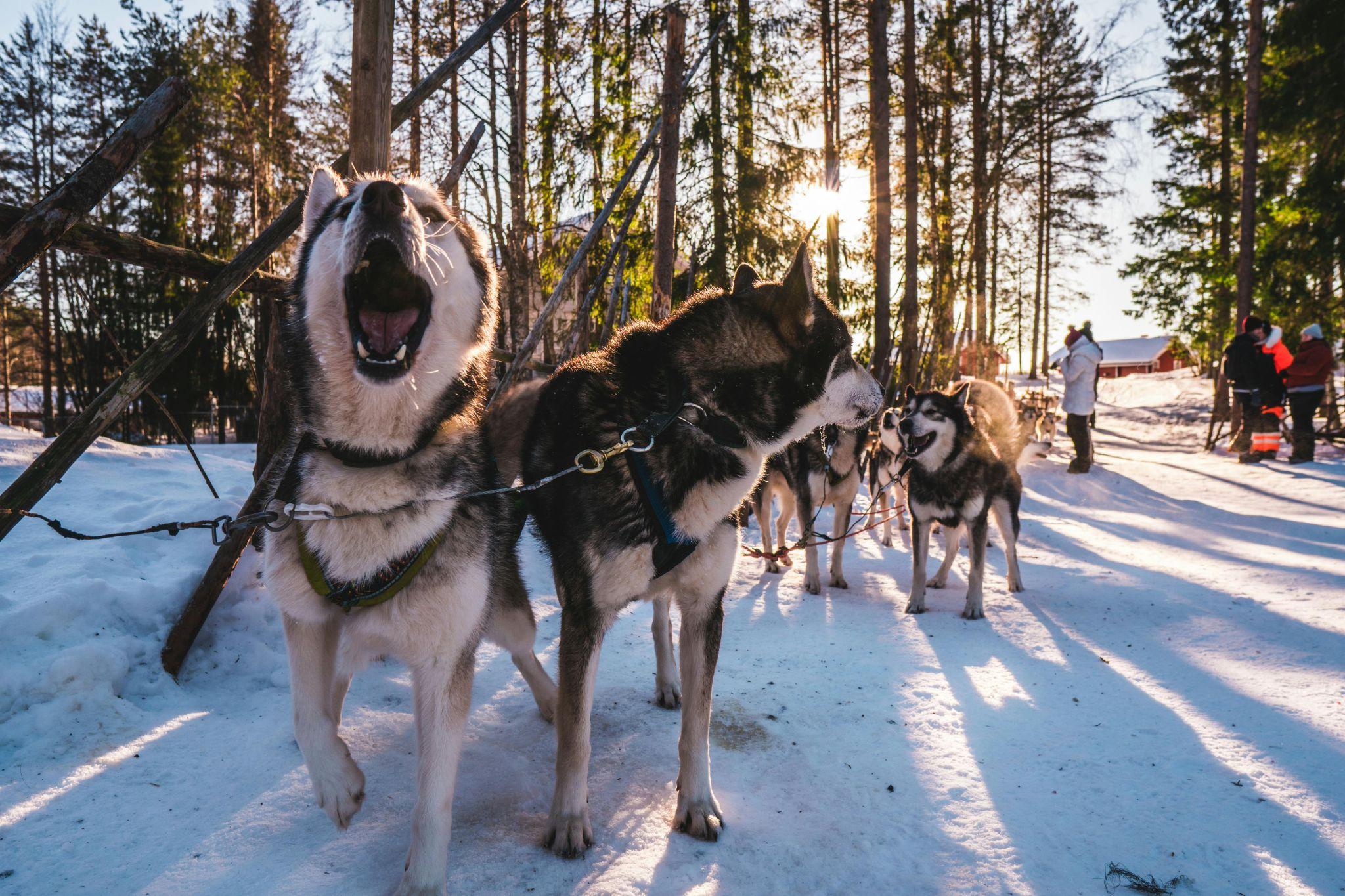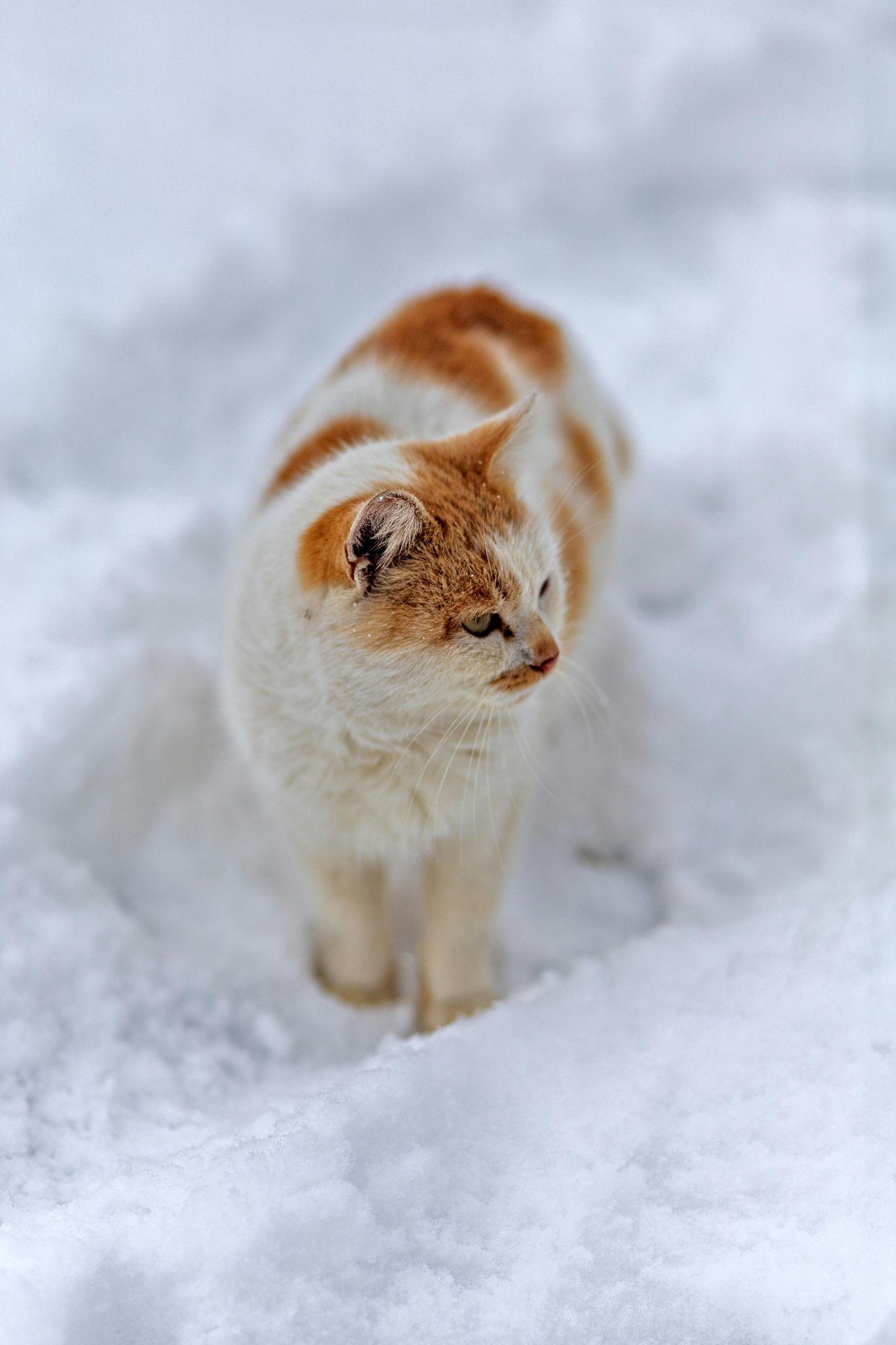Winter brings a special kind of beauty with its snow-covered landscapes and cozy, warm evenings indoors. However, for pet owners, it also comes with a unique set of challenges. The cold temperatures, slippery ice, and reduced daylight hours mean extra precautions are needed to keep our furry friends safe, warm, and healthy. Whether you’re caring for a cat or a dog, the winter months call for specific adjustments to their care routines. In this article, we’ll explore 10 essential tips for caring for your pet in winter to ensure that your beloved pets enjoy the season as much as you do. From dietary adjustments to protective gear, these tips will help you keep your pet happy and healthy all winter long.

1. Create a Warm and Comfortable Sleeping Space
Why a Warm Bed is Essential
Keeping your pet warm is a top priority during the winter months. A cozy, insulated sleeping area helps protect them from the cold and provides comfort.
- Layer with blankets: Adding extra blankets to your pet’s bed can create a snug, warm environment. Consider using a heated pet bed for additional warmth, but always ensure it’s safe and not too hot.
- Choose the right spot: Position your pet’s bed in a draft-free area, away from windows and doors where cold air might seep in. A warm, quiet corner can provide both comfort and a sense of security.
Outdoor Pets Need Extra Protection
If your pet spends a lot of time outdoors, it’s crucial to provide proper shelter to keep them safe from the cold.
- Insulate their shelter: Use insulated materials and provide bedding like straw to help retain heat. Avoid blankets for outdoor shelters, as they can become wet and freeze.
- Keep the shelter elevated and dry: Ensure the shelter is off the ground and has a waterproof roof to keep it dry and warm.

2. Adjust Their Diet for Winter
Increase Caloric Intake for Active Pets
Pets that are active outdoors during winter need more calories to help them maintain their body temperature.
- Consult with your vet: Discuss with your veterinarian whether your pet needs a higher caloric intake during the winter months. Active dogs, for example, may need additional food to fuel their outdoor adventures.
Monitor Indoor Pets for Weight Gain
Pets that spend more time indoors during winter may become less active and risk gaining weight.
- Adjust their diet accordingly: If your pet is less active, consider a lower-calorie diet to prevent unnecessary weight gain. Keep track of their weight and make adjustments as needed.
3. Keep Them Hydrated

The Importance of Fresh Water
Hydration is critical for your pet’s health year-round, including during the winter months when dehydration can still occur. https://truepetslove.com/product/fresh-step-cat-litter/
- Ensure constant access to fresh water: Check your pet’s water supply frequently, especially if they are outdoors, to ensure it hasn’t frozen. Providing fresh water regularly can prevent dehydration.
- Consider heated water bowls: For pets that spend time outside, heated water bowls can keep their water from freezing, ensuring they stay hydrated.
4. Protect Their Paws
Winter Hazards for Paws
Snow, ice, and salt can be tough on your pet’s paws, causing irritation or injury.
- Invest in pet booties: Booties can protect your pet’s paws from cold, salt, and ice while also providing better traction on slippery surfaces.
- Use paw balm: If your pet isn’t comfortable with booties, a pet-safe balm or wax can protect their paws by creating a barrier against ice and salt.
Check for Frostbite

After outdoor activities, check your pet’s paws for any signs of frostbite or irritation.
- Know the signs: Look for pale, gray, or bluish skin on the paws, which could indicate frostbite. If you notice these signs or if your pet seems uncomfortable, contact your veterinarian immediately.
5. Limit Over-Grooming
Keep Their Natural Coat Intact
Your pet’s fur serves as a natural insulator against the cold, so over-grooming can reduce their ability to stay warm.
- Limit baths: Avoid frequent bathing during winter, as it can strip away natural oils that keep their skin and coat healthy. If a bath is necessary, use a moisturizing pet shampoo.
- Regular brushing: Brushing your pet regularly helps remove dead hair and distribute natural oils, which can keep their coat in good condition and provide insulation.
6. Be Aware of Winter Toxins
Common Winter Hazards

The winter season introduces specific toxins that can be dangerous to pets, such as antifreeze and ice-melting chemicals.
- Store harmful substances safely: Keep all toxic substances, like antifreeze and de-icing salts, securely stored out of reach of pets. Even a small amount can be extremely harmful if ingested.
- Clean up spills immediately: If any chemicals spill, clean them up right away and keep your pet away from the area until it’s safe.
7. Adjust Walking and Exercise Routines
Modify Exercise to Suit Winter Conditions
Colder weather can make outdoor exercise more challenging for pets, particularly those not accustomed to low temperatures. https://truepetslove.com/how-to-choose-the-right-pet-safe-sunscreen/
- Shorter, more frequent walks: Instead of long walks, take your pet out more frequently but for shorter periods. This reduces exposure to the cold and minimizes the risk of frostbite or hypothermia.
- Walk during warmer parts of the day: Try to schedule walks during daylight hours when temperatures are slightly higher and conditions are safer.
8. Enhance Visibility in Low Light

Keep Your Pet Visible During Winter Walks
With shorter daylight hours, it’s often necessary to walk your pet in low-light conditions.
- Use reflective gear: Reflective collars, leashes, and vests can help make your pet more visible to drivers and others during early morning or evening walks.
- Add LED lights: Attaching an LED light to your pet’s collar can further enhance visibility, ensuring they’re seen from a distance.
9. Prepare a Winter Emergency Kit
Essential Supplies for Cold Weather
Having a winter emergency kit specifically for your pet is a wise precaution.
- Include the basics: Stock your kit with food, water, a warm blanket, any medications your pet needs, and a pet-specific first aid kit.
- Extra warmth: Include extra clothing, such as a pet sweater or coat, to provide warmth in case of a power outage or other emergency.
10. Maintain Regular Vet Checkups
Address Winter-Specific Health Concerns
Winter can exacerbate certain health conditions, especially in older pets or those with pre-existing issues.
- Schedule regular vet visits: Ensure your pet has routine checkups during the winter to monitor their health and address any seasonal concerns, such as arthritis.
- Stay up to date on preventatives: Keep your pet’s vaccinations and preventative treatments current, as some pests remain active even in colder months. https://truepetslove.com/

Winter provides a unique opportunity to bond with your pet, but it also requires extra care to keep them safe, healthy, and comfortable. By following these 10 tips for caring for your pet in winter, you can help your furry friend enjoy the colder months just as much as you do. Remember, each pet has its own unique needs, so always consider their specific requirements and consult with your veterinarian for tailored advice. With the right precautions and care, winter can be a fun and cozy time for both you and your pet!
